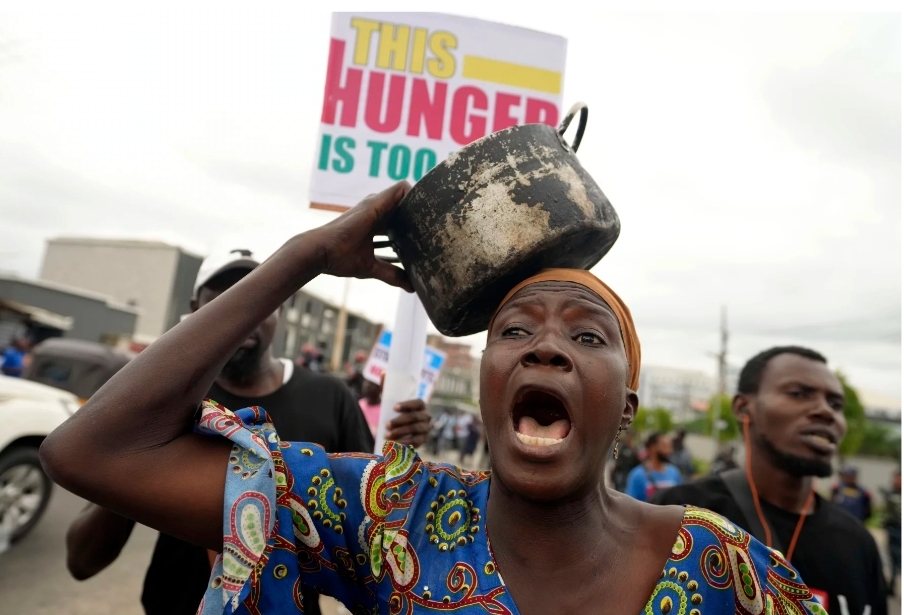Nigeria is facing its worst economic crisis in decades, with skyrocketing inflation, a national currency in free-fall and millions of people struggling to buy food.
Olayomi Koiki

KADUNA, Nigeria – Residents in Nigeria’s Kaduna State have decried their inability to provide three square meals for their families due to hyperinflation and persistent spikes in the prices of food items.
Some of the residents, who spoke to the News Agency of Nigeria (NAN) in separate interviews, stated that they had cut down their feeding routines due to the prevailing economic situation in the country.
Mrs. Fatima Idris, a housewife, said her husband had instructed her to cook twice a day, which are only breakfast and dinner.
“My husband is a monthly earner with less than N100,000 salary; a few years ago, he used to buy rice, beans, noodles and spaghetti for the family but now he can’t afford them.
“That is why he asked me to manage the little he can afford with the kids and be eating only twice a day; nowadays, we don’t even give food to our visitors,” she told NAN.
On his part, Muhammed Bello stated that he embarked on a two-day voluntary fasting to gain a reward and also reduce cost of feeding.
He explained that he drinks water with some dates at dawn and breaks his fast in the evening with a balanced diet to nourish his body.
Another resident Adamu Mairiga, a civil servant, stated that he tries as much as possible to provide three square meals for his family by sacrificing some of his needs.
“They will eat food but I don’t buy meat or fish because I feel those are luxuries for now and I can’t afford them; Though I ensure I buy them eggs once a month.
“The situation we are in this country, family men are facing hard times; from food to school fees and rent, we are just living by the special grace of God”, Mr. Mairiga said.
Nigeria is facing its worst economic crisis in decades, with skyrocketing inflation, a national currency in free-fall and millions of people struggling to buy food. Only two years ago Africa’s biggest economy, Nigeria is projected to drop to fourth place this year.
The pain is widespread. Unions strike to protest salaries of around $20 a month. People die in stampedes, desperate for free sacks of rice. Hospitals are overrun with women wracked by spasms from calcium deficiencies.
Although President Bola Tinubu increased the minimum wage — after strike action and months-long negotiations with labour unions — from N30,000 to N70,000, his government has increased spending for officials at a time of nationwide starvation.
For workers earning the new N70,000, or $43, per month minimum wage, capricious inflation and naira value have inflicted too much damage for the changes to make any difference in their lives.
The crisis is largely believed to be rooted in two major changes implemented by Mr Tinubu, elected 14 months ago: the partial removal of fuel subsidies and the floating of the currency, which together have caused major price rises.
Earlier in August, Amnesty International accused Nigerian security forces of killing at least 21 protesters during a week of economic hardship protests.
Police and other security agencies clamped down on protests after thousands of people joined rallies against government policies and the high cost of living from August 1st to 10th.
Security forces denied responsibility for deaths during the protests.
A nation of entrepreneurs, Nigeria’s more than 200 million citizens are skilled at managing in tough circumstances, without the services states usually provide. They generate their own electricity and source their own water. They take up arms and defend their communities when the armed forces cannot. They negotiate with armed kidnappers when family members are abducted.
But right now, their resourcefulness is being stretched to the limit.
